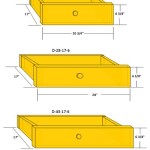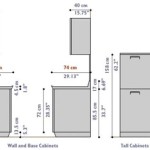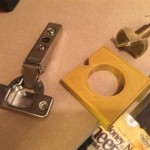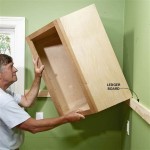How to Use Gel Stain on Kitchen Cabinets
Gel stains are an excellent option for achieving a rich, uniform finish on kitchen cabinets. They are easy to apply, offer excellent adhesion, and can be customized to your desired color and finish. Here is a comprehensive guide on how to use gel stain on kitchen cabinets:
Materials You'll Need:
- Gel stain
- Clean rags or lint-free cloths
- Sandpaper (120-grit and 220-grit)
- Tack cloth
- Foam brush or paintbrush
- Polyurethane or other protective finish
- Safety glasses and gloves
Surface Preparation:
Before applying gel stain, it is crucial to prepare the surface of your kitchen cabinets. This involves cleaning, sanding, and degreasing:
- Clean the cabinets: Remove dirt, grease, and any residue from the cabinets using a cleaning solution. Allow them to dry completely.
- Sand the cabinets: Use 120-grit sandpaper to sand the cabinets in the direction of the grain. Remove any existing finish or paint. Wipe away sanding dust with a tack cloth.
- Degrease the cabinets: Use a tack cloth or a cloth dampened with denatured alcohol to remove any remaining dust or oils from the cabinets.
Applying the Gel Stain:
Once the cabinets are prepared, you can apply the gel stain:
- Choose your gel stain color and finish: Gel stains come in a wide range of colors and finishes. Select the shade and sheen that complement your kitchen décor.
- Apply the gel stain: Dip a foam brush or paintbrush into the gel stain. Apply a thin, even coat to the cabinets, following the direction of the grain. Use light, even strokes.
- Allow it to penetrate: Let the gel stain penetrate the wood for the time recommended by the manufacturer. This usually ranges from 15 to 30 minutes.
- Wipe away excess: After the penetration time, use a clean rag to wipe away any excess gel stain from the surface. This will prevent streaks and unevenness.
Finishing the Surface:
Once the gel stain has dried, you can enhance the finish and protect your cabinets:
- Sand the gel stain: Lightly sand the dried gel stain with 220-grit sandpaper. This will smooth the finish and remove any imperfections.
- Apply a protective finish: Protect the gel-stained cabinets by applying a polyurethane or other suitable protective finish. Use a foam brush or paintbrush to apply several thin coats, allowing each coat to dry thoroughly before applying the next.
Tips for Using Gel Stains:
- Always wear safety glasses and gloves when working with gel stains.
- Test the gel stain on a small, inconspicuous area before applying it to the entire cabinet.
- Use a foam brush or paintbrush that is suitable for gel stains. Avoid brushes with natural bristles as they may absorb the stain.
- Apply the gel stain in thin, even coats to avoid runs or drips.
- Allow the gel stain to penetrate the wood for the recommended time before wiping away the excess.
- Sand the gel stain lightly to smooth the finish and remove any imperfections.
- Protect the gel-stained cabinets with a polyurethane or other suitable protective finish.
Conclusion:
Using gel stain on kitchen cabinets is a straightforward and effective way to transform their appearance. By following the steps outlined in this guide and paying attention to the details, you can achieve a professional-looking, long-lasting finish that will enhance the beauty and functionality of your kitchen.

10 Best Gel Stain Tips For Beginners Budgeting Bliss

How To Gel Stain Cabinets With Ease Diva Of Diy

Gel Stain Kitchen Cabinets Without Sanding Fast Easy Diy

How To Gel Stain Cabinets Printable She Buys He Builds

Gel Staining Kitchen Cabinets 6 Month Review Merrypad

Vintage Refined Gel Staining Kitchen Cabinets

Gel Staining Kitchen Cabinets 6 Month Review Merrypad

Java Gel Stain Kitchen Transformation General Finishes Design Center

Choosing The Right Dark Gel Stain Java Vs Walnut Staining Cabinets Kitchen Makeover Wood

The Creative Cubby Diy Gel Stain Cabinet Makeover
Related Posts








